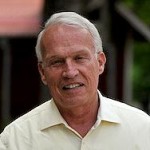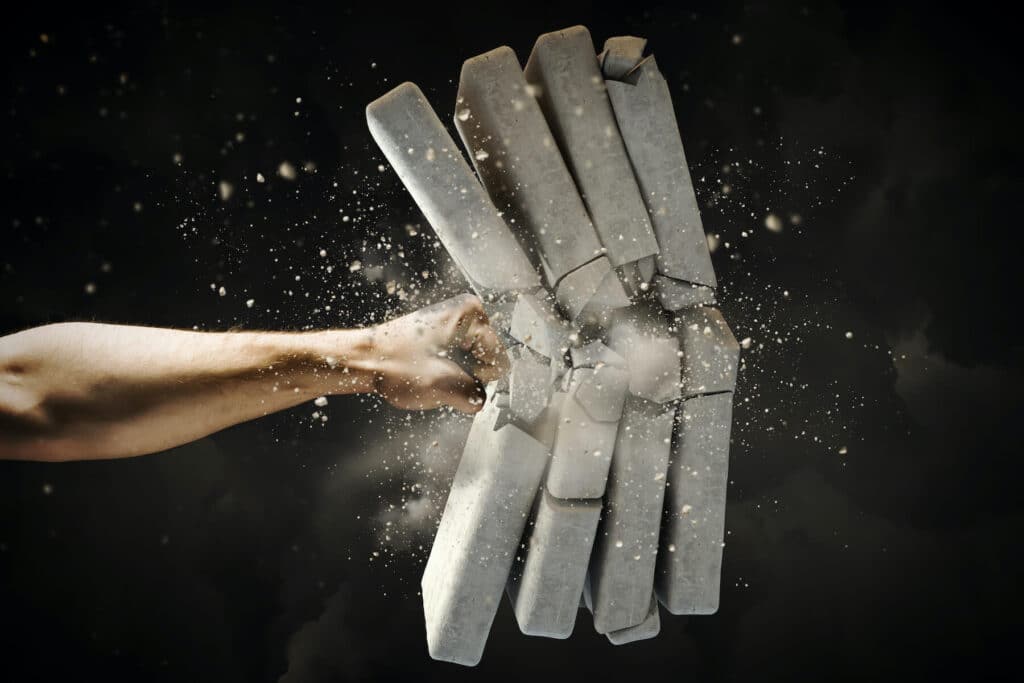Article Summary:
How one CEO used different strengths in different phases of his life as his context and priorities changed.
+++++++++++++++
I’ve been reflecting on my strengths lately as I look back on my life and career.
I recently used Gregg’s Strengths Search tool. (Gregg is my son and co-author on our book, Triple Crown Leadership.) It’s a self-assessment designed to help you identify your core strengths (the things you’re really good at) and start using them more.
First, I highlighted an initial list of strengths I’ve used throughout my life. I realized I’ve used different strengths in different phases of my life as I gained experience from the lessons I learned as well as the wisdom of family, friends, colleagues, and experts I’ve followed.
Upon reflection, some of the strengths I had were ultimately uncovered to be weaknesses. And I fashioned some initial weaknesses over time into strengths.
I’ve learned we’re not fixed captives of the strengths and weaknesses we begin with. If we’re humble enough to open ourselves to listening, learning, seeking feedback, and venturing out of our comfort zones, we can grow and evolve into better and more fulfilled people and leaders. I hope I have.
Looking back, I can trace this evolution over five phases of my life.
Phase 1: Me, Running Something
Early in my career, after getting my MBA and a short stint as a U.S. Army officer, I entered the business world focused on “running something.” I wanted to lead. I got involved in a recent IPO and several entrepreneurial ventures. My focus was on taking charge, leading, executing, overcoming challenges, and getting things done. I was pretty much a loner and worked hard. My ego was inflated, and my trust in people was low. It was a rocky start to my business career.
Phase 2: Us, Leading Collaboratively
One of the entrepreneurs I worked for exposed me to the concepts of servant leadership, which was a mind-flip for me. In essence, followers choose leaders who they feel will serve them, not leaders wrapped in their own ego. I evolved my leadership approach to be more open, trusting, and collaborative.
Over time, I had the opportunity to lead at high levels as a Vice President and General Manager of Avery Dennison, Group V.P. of Pitney Bowes, President of Monarch Marking Systems, CEO of Recognition Equipment (a New York Stock Exchange turnaround), and CEO of Sensormatic Electronics (also a NYSE turnaround).
During this phase of my career, the major strengths I practiced were leading collaboratively, serving, trusting, overcoming challenges, and crisis management. My purpose evolved from me wanting to “run something” to trying to “make the world a better place.” It was a better phase of my life, but the public company turnarounds were brutally hard.

Leadership Derailers Assessment
Take this assessment to identify what’s inhibiting your leadership effectiveness. It will help you develop self-awareness and identify ways to improve your leadership.
Phase 3: Retirement, Lost for a While
I retired early, and my wife, June, and I built our dream house in the Rocky Mountains. I just wanted to relax, ski, golf, and ride motorcycles. I had missed those indulgences in my hectic career. I unwound from years of stress but soon got bored. I wasn’t doing anything meaningful, and I wasn’t using my inherent strengths. Eventually, I realized that I still had more to give. (See my article, “Don’t Retire, Reawaken and Refire.”)
Phase 4: Teaching, Speaking, and Writing
I turned my attention to sharing all that I had learned about leadership over the decades. I taught leadership courses at the University of Denver, Colorado Mountain College, and elsewhere. I spoke to many groups and wrote extensively about leadership, including our award-winning book, Triple Crown Leadership: Building Excellence, Ethical, and Enduring Organizations. During those years, the top strengths I practiced were inspiring, mentoring, serving, speaking, teaching, and writing.
Phase 5: Spirituality and Service
Seven years ago, I was diagnosed with prostate cancer. I received expert treatment at Mayo Clinic and, fortunately, am now cancer-free. When I returned home, I felt a longing for something better and deeper in my life. In spite of all the success and blessings I’ve enjoyed, something else was calling to me.
Undoubtedly, my colleagues and I did many good things in my business career, turning around broken companies and developing and unleashing new, ethical leaders who were serving others and doing good in the world. But I was driven by my need to lead. I never found the true peace, joy, comfort, and perfect love that my heart longed for.
I realized I’d been worshipping the idol of leading others and then teaching others. I was the leader and then the “sage on the stage” teaching. I was too caught up in the secular world and was neglecting the spiritual realm. God was not at the center of my life.
Now, I willingly surrender to do God’s will, not my own. I focus on loving and serving Him and others. Amazingly, opportunities to do that work now arise often in my life, including serving people in need and caring for family and friends going through health crises or other tough times. The strengths that I’m choosing to focus on now include caring, compassion, listening, serving, and loving. It’s wonderful.
Of course, there’s a long list of things I’m not good at. Thankfully, I had a terrific wife, family, and colleagues who in many cases had different strengths that complemented mine. We were stronger together, especially when we played to each other’s strengths.
My life has become more complete. I now realize my strengths are gifts from God. I‘m thankful to try to put them to His use. I’m still not where I want to be, but I live for Him and for others, not myself. What a transformation.

Personal Values Exercise
Complete this exercise to identify your personal values. It will help you develop self-awareness, including clarity about what’s most important to you in life and work, and serve as a safe harbor for you to return to when things are tough.
Conclusion
Looking back, I see that my context and priorities changed. There are things I had to learn to get proficient at. For example, I had to overcome speech impediments to improve my public speaking. Also, I had to learn to move past my own ego and pride to start caring more for and about others. And I had to learn to focus on God.
Once I developed greater self-awareness, I tried to use my strengths in service of my purpose and core values and to pair them with my passions.
Out of the 21 various strengths I focused on during my life, there were three that overlapped across the phases of my life. One was overcoming challenges. That was mostly a function of the difficult environments I worked in. The second was leading (which evolved into leading collaboratively). The third was serving. That was a reflection of a breakthrough in the way I viewed leadership (from running something to serving through leading) and my changing focus from “me” to “we.”
As my context and priorities changed, I learned to focus more on knowing and honoring my core values.* Now, I view my core strengths as serving (even to the point of sacrifice), relating (including changing the focus from me to we, and including both people and God), caring (including loving), and leading.
Are you trying to get more clarity on your top strengths and how you can incorporate them more into your life and work? Consider using the Strengths Search tool, and reach out if you’d like to explore this with me.
–Bob Vanourek

Reflection Questions
- Do you know what your strengths are?
- Have you used different strengths in different phases of your life and work? How so?
- What will you do, starting today, to use more of your strengths in your life and work?
Tools for You
- Leadership Derailers Assessment to help you identify what’s inhibiting your leadership effectiveness
- Personal Values Exercise to help you determine and clarify what’s most important to you
- Strengths Search to help you identify your core strengths and integrate them into your life and work

Strengths Search
We all have core strengths–the things in which we most excel. Take this self-assessment to determine your core strengths so you can integrate them more into your life and work.
Related Articles
- “What Are Your Strengths—And How Can You Use Them More?”
- “The Power of Knowing and Using Our Strengths“
- “Don’t Retire, Reawaken and Refire”
- “Purposeful Aging–Still Growing and Giving” (conversation with Richard Leider)
- “Career Tips for Young Professionals“
* Years ago, I determined my core values to be the following:
- Leadership: I choose to lead at times and follow others at times. Leadership is a responsibility to step up, be accountable, listen, debate constructively, and make decisions for the best interests of the group, getting beyond my self-interest and ego to help people achieve extraordinary accomplishments.
- Relationships: Deep, meaningful, caring connections with my network of family, friends, and colleagues are vitally important to me. I believe in the capabilities of people and have faith that we can work well together in trusting collaboration.
- Integrity: My moral compass is set and based on ethical actions, honesty, honor, kindness, spirituality, and leading an integrated life, in which I am the same authentic person in all facets of my life.
- Courage: I will meet life’s trials bravely, facing my fears and moving through them with quiet fortitude, resisting the negative pressures and temptations of the world, even as a solitary voice of one.
- Service: My purpose is to love and serve God and others. I serve to help others get to a better place, creating value for them and with them, treating them with respect and dignity, and helping them find the inherent love, happiness, beauty, and joy in life.
(To determine your core values, use our Personal Values Exercise.)

Triple Crown Leadership Newsletter
Join our community. Sign up now and get our monthly inspirations (new articles, announcements, opportunities, resources, and more). Welcome!
+++++++++++++++++++++++
Gregg Vanourek and Bob Vanourek are leadership practitioners, teachers, and award-winning authors (and son and father). They are co-authors of Triple Crown Leadership: Building Excellent, Ethical, and Enduring Organizations, a winner of the International Book Awards. Check out their Leadership Derailers Assessment or get their monthly newsletter. If you found value in this, please forward it to a friend. Every little bit helps!


2 thoughts on “A CEO Reflects on Using Different Strengths in Different Life Phases”
I’ve recently done a Clifton Strength Assessment – it was very insightful!
I also noticed that my greatest strength, that of having a balanced viewpoint – messes with the test as it relies on having an opinion one way or another in a lot of questions.
I definitely see how I use different strength for different areas and times. Right now I use perseverance, determination, compassion, and creativity for work and for relaxation I use my awareness of beauty.
As a parent I use patience and openminded interest.
As a vet I used time management, listening skill, and knowledge.
Its interesting to reflect on that.
Stefanie, wow, it’s very interesting to see your thoughts on using different strengths in different areas of your life (and times). I also found a lot of value in the Clifton Strengths Assessment, but we did build our own Strengths Search tool (https://greggvanourek.com/strengths-search/) / Thanks for sharing your valuable experiences and reflections. Great–and interesting indeed! -Gregg